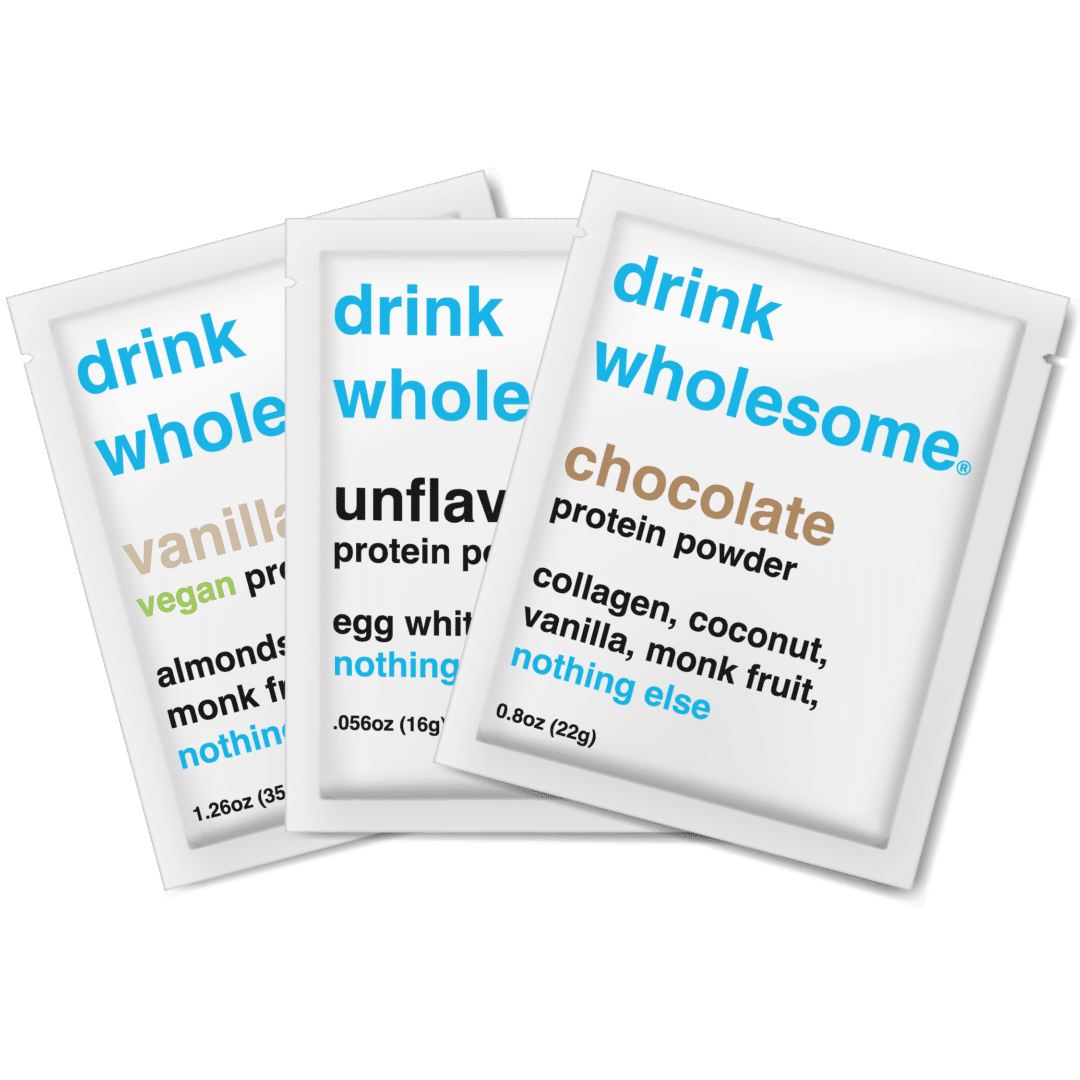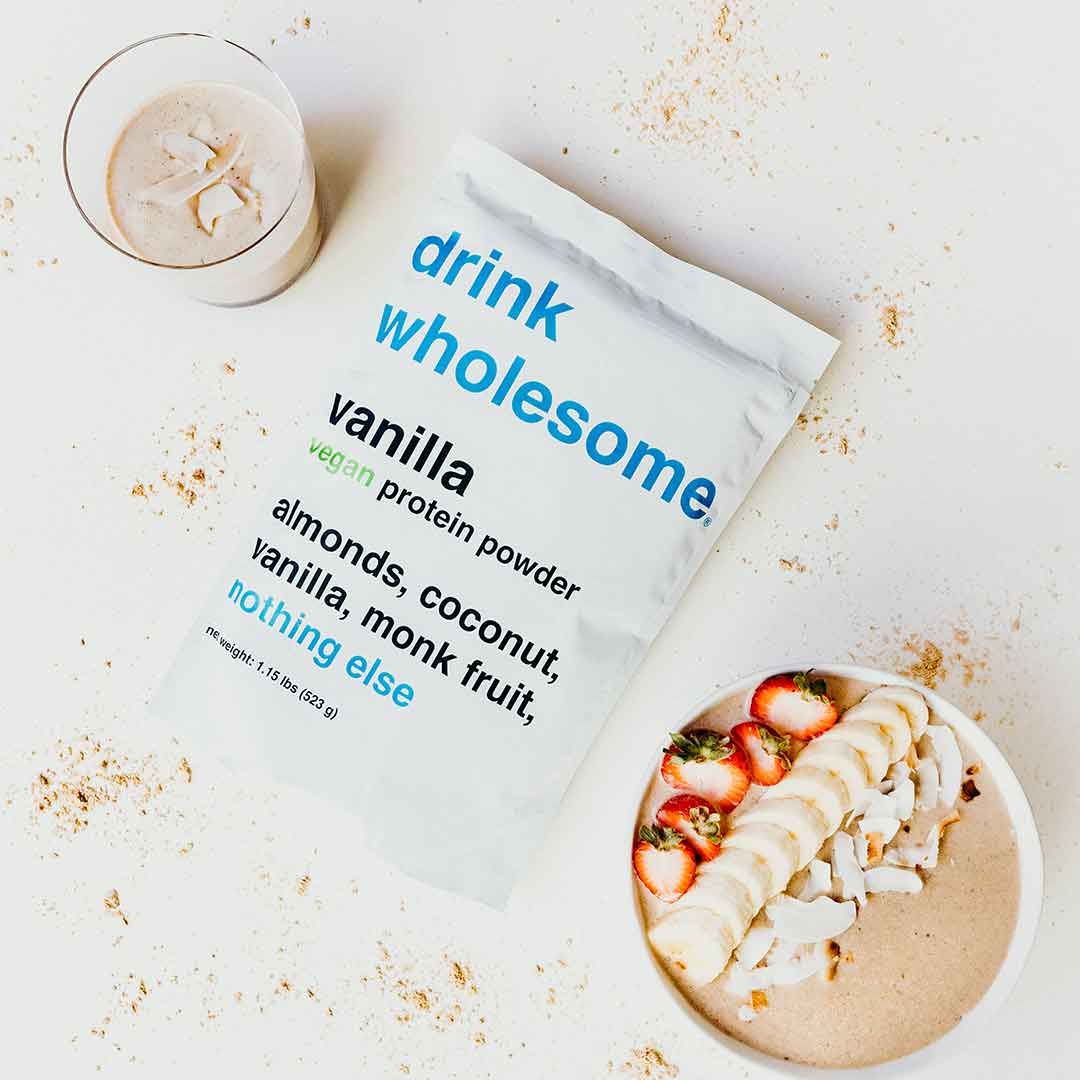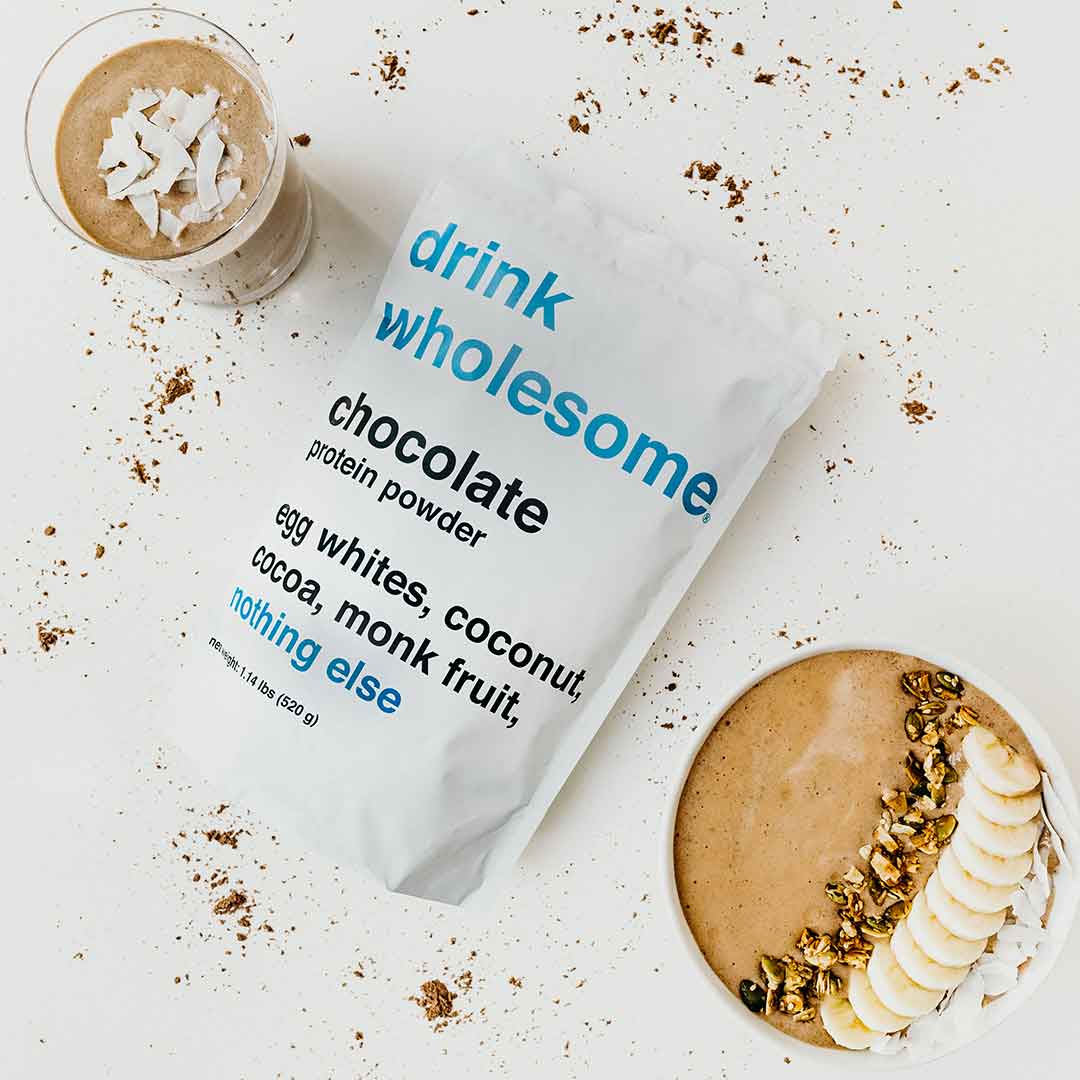drink wholesome is the best legume-free protein powder.
Written by Jack Schrupp & endorsed by Baylee Reller, RDN
Why eat a legume-free diet?
A legume-free diet is a diet that excludes legumes, a type of plant in the Fabaceae family that includes foods like beans, lentils, peas, and peanuts.
There are various reasons why someone might choose to follow a legume-free diet, including:
- Allergies: Some individuals have allergies to specific legumes like peanuts, which can be life-threatening. In such cases, they must avoid all legumes to prevent allergic reactions.
- Digestive Issues: Legumes contain compounds like lectins and phytates that can be difficult to digest for some people, leading to digestive discomfort or symptoms such as gas and bloating. Eliminating legumes from the diet can alleviate these issues.
- Specific Dietary Approaches: Certain diets, like the Paleo diet, avoid legumes because they were not typically consumed by our distant ancestors. Similarly, some low-carb or ketogenic diets restrict legume consumption due to their carbohydrate content.
If you are vegetarian or vegan and considering a legume-free diet, it is essential that you make sure you are eating enough protein. Legumes are a great source of plant protein, and without them you may have a hard time meeting your protein needs.












